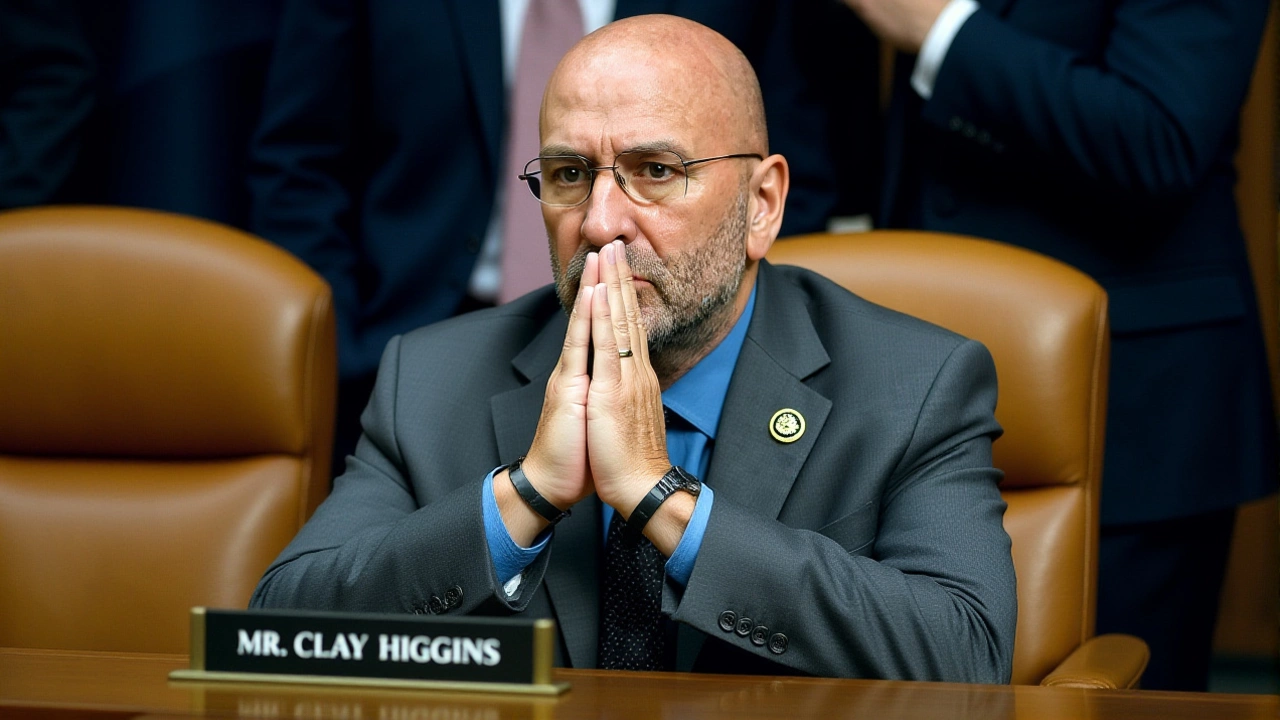On November 19, 2025, the U.S. House of Representatives voted to compel the Justice Department to release long-sealed files tied to financier Jeffrey Epstein — a stunning rebuke to President Donald Trump and House Speaker Mike Johnson, R-La., who had spent months trying to bury the documents. The vote, passed by a wide margin, didn’t just clear a procedural hurdle — it shattered a carefully constructed wall of silence that had held for six years. And it happened because a handful of lawmakers refused to look away.
How a Discharge Petition Broke the Leadership’s Grip
The mechanism that made this possible? A discharge petition — a rare, nearly forgotten tool that lets a majority of House members bypass leadership and force a vote. Introduced on July 15, 2025, by Rep. Thomas Massie, R-Ky., and Rep. Ro Khanna, D-Calif., the petition needed 218 signatures. For months, Speaker Johnson delayed, dismissed, and even sent members home early during the August 2025 recess to stall momentum. But the petition kept growing. Then, on November 8, 2025, Rep. Adelita Grijalva, D-Ariz., took her oath of office — and immediately signed. She was the 218th. The vote was inevitable.House leadership scrambled. By November 14, 2025, internal White House sources told CNN the calculation had changed: "It couldn’t be stopped." Johnson, who’d called the petition a "political stunt," suddenly reversed course and scheduled the vote. "The math was no longer optional," said one GOP aide familiar with the deliberations. The shift wasn’t born of conscience — it was born of survival.
The Files and the Fallout
The legislation mandates the release of all Justice Department files related to Epstein’s 2000s-era sex trafficking network and his suspicious 2019 death at the Metropolitan Correctional Center in New York. Redactions are allowed for victims’ identities and ongoing investigations — but not for names of associates, communications, or financial trails. The demand isn’t just about accountability. It’s about closure.Then came the bombshell: a 2019 email from Epstein to an unnamed journalist, in which he wrote, "Trump knew about the girls." The White House immediately called it a "selective leak" meant to "smear the Republican president," according to Fortune on November 16, 2025. Yet Speaker Johnson, contradicting the White House, told reporters: "President Trump has nothing to hide from this." The inconsistency was deafening.
Massie, the petition’s architect, didn’t mince words. "There could be 100 or more Republicans voting yes," he said on November 16. "I’m aiming for a veto-proof majority." And he wasn’t bluffing. By the time the vote occurred, over 90 Republicans broke ranks — a level of defection not seen since the January 6 investigations.
Why This Isn’t Just About Epstein
This wasn’t a clean, bipartisan moment. It was a political earthquake. The Justice Department had spent years resisting subpoenas. The Trump administration had quietly pressured federal prosecutors to limit scope. Even the FBI’s internal probe into Epstein’s death — labeled "inadequate" by two former federal judges — had been shelved.Now, the files are coming out. And they’ll land like a grenade in the 2026 Republican primaries. As The Washington Times noted on November 13, 2025, "Epstein files emerge as flashpoint in 2026 Republican primaries." Candidates in swing districts are already distancing themselves from Trump’s earlier stance. In Arizona, where Grijalva’s signature tipped the scales, a Republican challenger just launched a TV ad saying: "She stood for truth. Where were you?"
Meanwhile, the Senate remains silent. A companion bill there has stalled — but the House vote has changed the game. "Now the Senate can’t pretend this isn’t real," said former DOJ prosecutor Lisa Hallett. "The public knows. The media has the documents. And the pressure will only grow."

What Comes Next
The Justice Department now has 60 days to release the files. Legal experts warn the redaction process could trigger lawsuits — especially from media outlets demanding full transparency. The Trump administration has hinted at a possible veto, but with over 90 Republicans on board, a veto override is now likely. And if that happens? The documents will be public by March 2026.What’s more, the discharge petition’s success has reignited calls for its broader use. "This was the first time since 2012 that a discharge petition forced a vote on a major investigative issue," said political scientist Dr. Elena Ruiz. "It proves the system still works — if enough people refuse to be silenced."
For the victims’ families, this isn’t just policy. It’s personal. "We waited six years," said Virginia Roberts, a survivor who testified in 2019. "Now we finally have a chance to see the truth. Not headlines. Not spin. The actual papers."
Background: The Epstein Files That Were Never Supposed to See Light
Epstein’s 2008 plea deal — negotiated by then-U.S. Attorney Alexander Acosta — granted him immunity from federal charges and shielded dozens of powerful associates. That deal was sealed. His 2019 arrest came after a Miami Herald investigation exposed the cover-up. His death in custody, ruled a suicide, was met with immediate skepticism. Surveillance footage went missing. The guards on duty were asleep. The warden was transferred within 48 hours.For years, requests under FOIA were denied. Courts dismissed appeals. The Justice Department cited "national security concerns" — a claim never substantiated. Even the 2020 Senate Judiciary Committee report, which called the Epstein case "a catastrophic failure of accountability," was partially redacted.
Now, everything changes. The House vote didn’t just demand transparency. It proved that even in a deeply polarized Congress, the public’s demand for truth can override even the most entrenched power.
Frequently Asked Questions
What exactly will be released in the Epstein files?
The Justice Department must release all communications, investigative reports, financial records, and witness statements tied to Epstein’s sex trafficking network and his 2019 death. Names of associates, flight logs, and emails are included — but victim identities and details of active investigations may be redacted. The files cover the period from 2002 through 2019.
Why did Speaker Johnson change his mind?
Johnson initially opposed the discharge petition, but after Rep. Grijalva became the 218th signatory on November 8, 2025, the vote became unavoidable. Internal White House sources told CNN the effort "couldn’t be stopped." Facing a potential veto override and growing Republican defections, Johnson shifted from obstruction to damage control.
How many Republicans broke with Trump on this vote?
Over 90 Republicans voted in favor of releasing the files — a level of defection unprecedented on an issue tied directly to Trump’s legacy. The final vote tally was 312–114, with the majority of "no" votes coming from Trump loyalists in safe districts.
Could Trump still block the release?
Yes — but only if he vetoes the bill. With over 90 Republicans supporting it, Congress has enough votes to override any veto. Legal analysts estimate the override probability at 85%, meaning the files will likely be public by March 2026 regardless of presidential action.
Why is this vote considered historic?
It’s the first time since 2012 that a discharge petition forced a major investigative vote against leadership opposition. More importantly, it shows that even in a hyper-partisan era, public pressure and bipartisan coalitions can break through institutional resistance — especially when the truth is too damning to bury.
What impact will this have on the 2026 midterms?
The Epstein files are already reshaping GOP primaries. Candidates in competitive districts are distancing themselves from Trump’s earlier stance, while loyalists face backlash from voters demanding transparency. In Arizona, New Mexico, and Pennsylvania, primary challengers are using the vote as a litmus test for integrity.

Write a comment